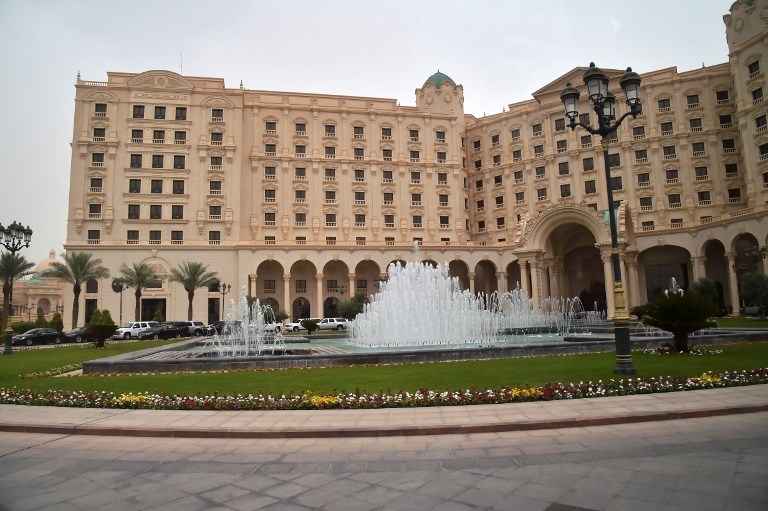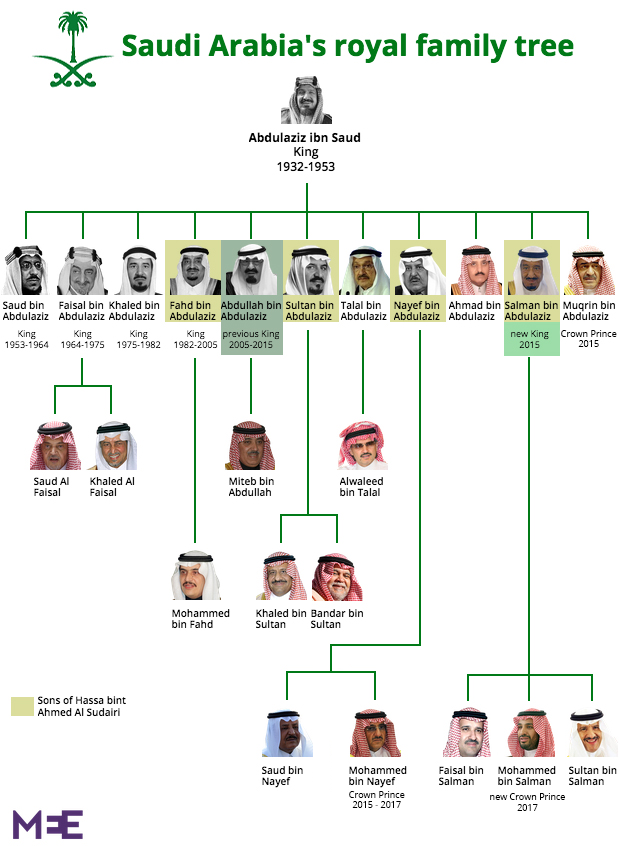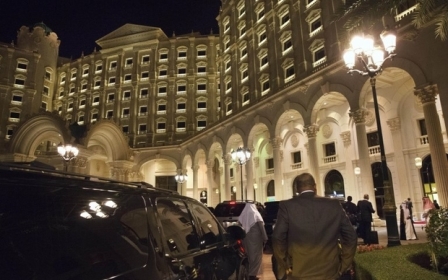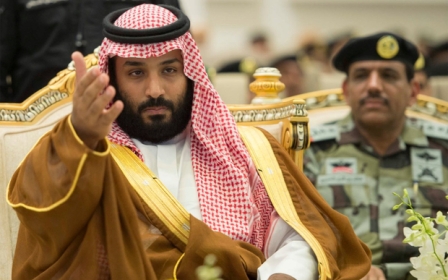Saudi hotel to reopen after being used as princes' prison

The luxury Riyadh hotel used as a prison during Saudi Arabia’s crackdown on corruption will reopen for business next month, according to a company employee and its website, suggesting authorities are close to settling the cases of many suspects.
Dozens of princes, senior officials and top businessmen were detained and confined in the opulent Ritz-Carlton Riyadh as the government launched the purge in early November. The hotel was closed to normal business.
The detainees were tortured at the luxurious establishment in Riyadh, sources told Middle East Eye in November. The authorities also set up medical units at the hotel to treat officials who needed care after beatings.
Suspects were also held at the Courtyard, Diplomatic Quarter, across the street from the Ritz-Carlton in Riyadh. Both hotels are owned by Marriott.
MEE contacted Marriott about the reported abuse taking place at the Riyadh properties in November, and the hotel chain acknowledged that the establishments “are not operating as traditional hotels for the time being”.
"We remain in close contact with the guests and groups holding existing reservations; working with them to assist with their reservations and minimise disruption to their travel and event plans," Marriott said in a statement then.
On Monday, a Ritz-Carlton employee at the office taking bookings for the hotel, who declined to be identified, told Reuters by telephone that bookings by the public would be accepted from 14 February.Official sources told Reuters earlier that Saudi authorities were close to winding up a major part of the crackdown, which would allow them to return the Ritz-Carlton to normal operations.
In a statement to Reuters on Monday, a spokesperson for the Marriott, echoed the comments made in November. “The hotel is operating under the directive of local authorities and not as a traditional hotel for the time being,” it said.
The spokesperson declined to elaborate or discuss when the hotel might reopen.
Saudi authorities have said they expect the vast majority of suspects to agree to financial settlements of charges against them, and that Riyadh hopes to recover about $100bn of illicit funds. Most detainees are not expected to be prosecuted.
Construction giant Saudi Binladin Group said on Saturday that some of its shareholders might transfer part of their holdings to the state in a settlement with authorities. Chairman Bakr Bin Laden and several family members were detained in the crackdown.
In late November Miteb bin Abdullah, a senior Saudi prince once seen as a leading contender to the throne, was freed after reaching a settlement with authorities that involved paying more than $1bn, according to a Saudi official.
Another top businessman who has been held at the Ritz-Carlton is billionaire Prince Alwaleed bin Talal, chairman and owner of global investment firm Kingdom Holding. A Saudi official told Reuters this week that the prince was negotiating a possible settlement but so far had not agreed on terms.
The hotel has 492 guest rooms and suites and 52 acres of landscaped gardens, according to its website.
Critics accuse Crown Prince Mohammed bin Salman of using allegations of corruption to jail and subdue potential rivals within the royal family and the kingdom's economic establishment.
New MEE newsletter: Jerusalem Dispatch
Sign up to get the latest insights and analysis on Israel-Palestine, alongside Turkey Unpacked and other MEE newsletters
Middle East Eye delivers independent and unrivalled coverage and analysis of the Middle East, North Africa and beyond. To learn more about republishing this content and the associated fees, please fill out this form. More about MEE can be found here.





